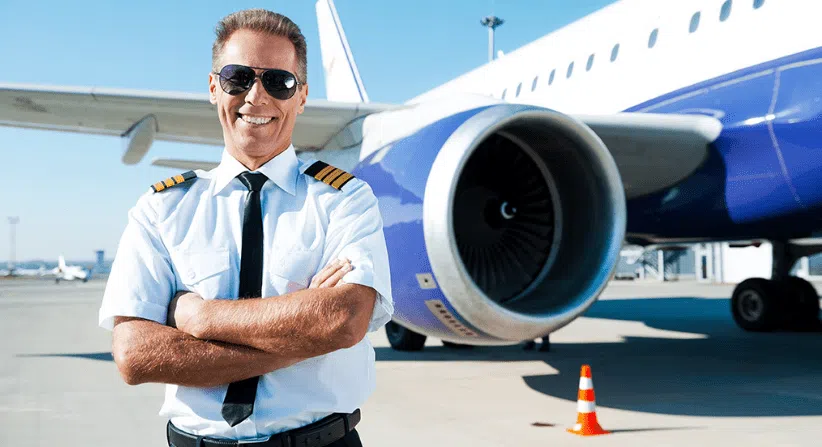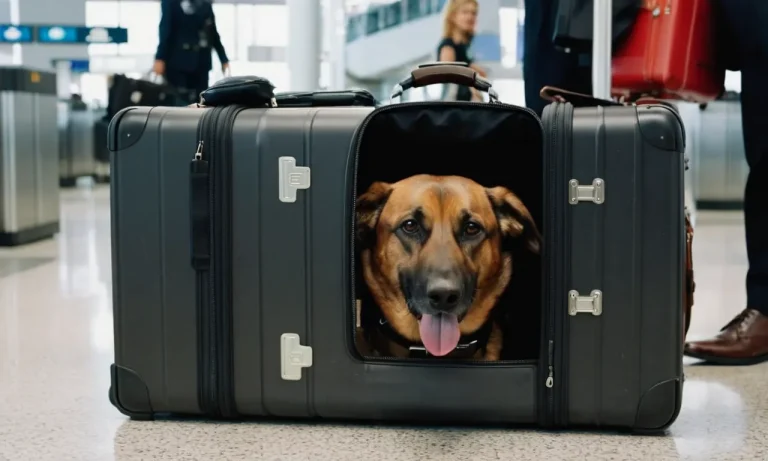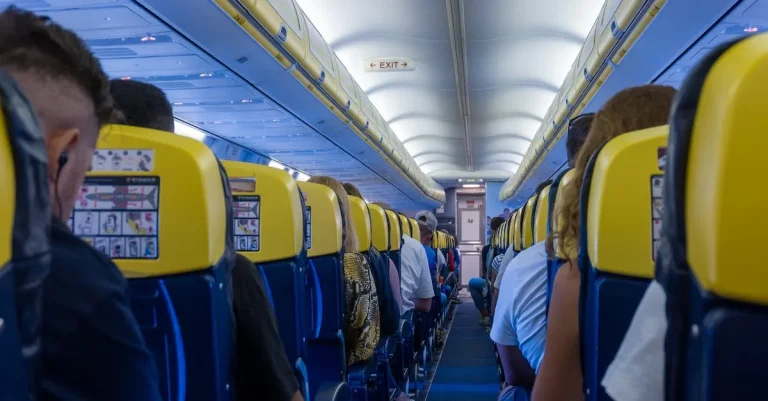Have you ever looked up in the sky and wondered what it would be like to be the one flying the plane? Becoming a pilot is an exciting career path that allows you to see the world from above the clouds.
But there are a few key differences between being a cargo pilot and an airline pilot that impact your day-to-day responsibilities and overall lifestyle.
If you’re short on time, here’s a quick answer to your question: Cargo pilots fly unscheduled flights, often at night, and transport cargo domestically and internationally.
Airline pilots follow set flight schedules, usually transporting passengers on domestic or short-haul international flights.
Cargo pilot schedules are irregular but pay higher, while airline pilot schedules are more stable with better benefits.
Typical Work Schedules
Cargo Pilot Work Schedule
Cargo pilots often have more flexible work schedules compared to airline pilots. They may work on a part-time or on-call basis, allowing them to have more control over their time.
This flexibility can be appealing to individuals who value work-life balance or have other personal commitments.
However, it is important to note that cargo pilots may also have irregular work hours, including overnight flights or long periods away from home.
Airline Pilot Work Schedule
Airline pilots typically have more structured and predictable work schedules compared to cargo pilots. They usually follow a set rotation, which includes a combination of flight time, rest periods, and days off.
This allows them to plan their personal lives more easily and have a consistent routine.
However, airline pilots may also have to work on weekends, holidays, and during irregular hours depending on their assigned flights and routes.
It is worth mentioning that the work schedules for both cargo and airline pilots can vary depending on the specific airline or cargo company they work for.
Some airlines may offer more flexibility to their pilots, while others may have stricter scheduling policies.
Job Responsibilities and Duties
Cargo Pilot Duties
Cargo pilots play a crucial role in the transportation industry by ensuring the safe and timely delivery of goods and freight.
Their primary responsibility is to operate and navigate cargo aircraft, adhering to strict safety protocols and regulations.
They are responsible for planning flight routes, conducting pre-flight inspections, and ensuring that cargo is loaded and secured properly.
Cargo pilots must also monitor weather conditions and make necessary adjustments to their flight plans to ensure a smooth and efficient journey.
In addition to flying the aircraft, cargo pilots are often required to handle administrative tasks such as completing flight documents, maintaining accurate records, and communicating with ground control and air traffic control.
Airline Pilot Duties
Airline pilots are responsible for safely transporting passengers to their destinations. Their primary duty is to operate and navigate commercial aircraft, ensuring the safety of passengers and crew members.
Airline pilots must undergo extensive training and hold the necessary licenses and certifications to fly commercial planes.
They are responsible for conducting pre-flight inspections, communicating with air traffic control, and adhering to all aviation regulations and procedures.
During the flight, airline pilots must monitor the aircraft’s systems, make adjustments as necessary, and ensure a smooth and comfortable journey for passengers.
They are also responsible for making announcements, providing updates, and addressing any in-flight emergencies that may arise.
Comparison:
| Cargo Pilot | Airline Pilot | |
|---|---|---|
| Primary Responsibility | Transporting goods and freight | Transporting passengers |
| Flight Planning | Plan flight routes and monitor weather conditions | Plan flight routes and communicate with air traffic control |
| Administrative Tasks | Completing flight documents and maintaining records | Providing updates and addressing in-flight emergencies |
| Training and Licensing Requirements | Commercial pilot license | 1,500 flight hours and commercial pilot license |
| Median Annual Wage | $211,790 (May 2022) | N/A |
Both cargo pilots and airline pilots have important roles in the aviation industry, but their job responsibilities and duties differ.
It’s essential to consider your interests, career goals, and lifestyle preferences when deciding which career path is right for you.
Career Progression and Advancement
Cargo Pilot Advancement
For those considering a career as a cargo pilot, there are several opportunities for advancement and career progression.
As a cargo pilot, one can start off as a First Officer, working alongside a Captain to gain experience and build flight hours.
With time and experience, a cargo pilot can move up to become a Captain, taking on the responsibilities of commanding the aircraft and managing the crew.
This progression is often based on the number of flight hours accumulated and the successful completion of additional training and certifications.
Beyond the role of Captain, cargo pilots can also pursue opportunities for advancement within their respective cargo airlines.
This may include moving into management positions, such as a Chief Pilot or Flight Operations Manager, where they would oversee flight operations and ensure regulatory compliance.
Other advancement opportunities may include roles in training and development, safety management, or even transitioning into roles within the airline’s corporate office.

Airline Pilot Advancement
As an airline pilot, the career progression and advancement opportunities are slightly different compared to cargo pilots.
Similar to cargo pilots, airline pilots typically start as First Officers, gaining experience and flight hours under the guidance of a Captain.
As they accumulate the necessary flight hours and meet the qualifications, they can then upgrade to the role of Captain.
However, the advancement opportunities for airline pilots often extend beyond just flying. Many airlines offer a variety of career paths and positions that pilots can pursue.
This may include roles in management, such as becoming a Chief Pilot or Director of Operations, where they would oversee the airline’s flight operations and ensure compliance with safety regulations.
There are also opportunities to move into training and development, working as a flight instructor or simulator instructor to train and mentor new pilots.
Furthermore, airline pilots may have the opportunity to transition into specialized roles within the airline, such as becoming a check airman or a flight standards officer.
These positions involve conducting flight checks and evaluations, ensuring that pilots are meeting the airline’s standards and adhering to all regulations.
Such roles often require additional training and certification.
It is worth noting that the career progression and advancement opportunities for both cargo pilots and airline pilots can vary depending on the specific airline and its individual policies.
It is important for aspiring pilots to research and understand the advancement opportunities available within their desired career path and airline.
Pay, Benefits, Time Off
Cargo Pilot Compensation
When considering a career as a cargo pilot, it’s important to understand the compensation package that comes with the job.
While salaries can vary depending on factors such as experience and the type of cargo being transported, cargo pilots generally earn a competitive salary.
It’s worth noting that cargo pilots often have the opportunity to earn additional income through bonuses and per diems.
In addition to competitive salaries, cargo pilots often enjoy attractive benefits packages. These may include health insurance, retirement plans, and vacation time.
While the specific benefits can vary between employers, cargo pilots typically receive comprehensive coverage to ensure their well-being and financial security.
When it comes to time off, cargo pilots usually have a more flexible schedule compared to their airline pilot counterparts.
This flexibility allows them to have a better work-life balance, which can be especially beneficial for those with families or other personal commitments.
Cargo pilots typically have more control over their schedule and can often choose when they want to take time off.
Cargo Pilot Training
To become a cargo pilot, there are specific qualifications and training requirements that need to be met. Firstly, candidates must obtain a commercial pilot’s license (CPL) with an instrument rating (IR).
This involves completing a minimum number of flight hours, passing written exams, and demonstrating proficiency in flying various aircraft.
In addition to the CPL, cargo pilots often benefit from obtaining a multi-engine rating (ME), as cargo aircraft are typically larger and require the ability to handle multiple engines.
This rating allows pilots to operate aircraft with more than one engine, enhancing their skills and employability in the cargo industry.
Once the necessary licenses and ratings are obtained, aspiring cargo pilots typically undergo further training specific to cargo operations.
This includes learning about cargo loading and unloading procedures, weight and balance calculations, and understanding the unique challenges and regulations associated with transporting goods.
It’s worth noting that cargo pilot training can vary depending on the specific cargo airline or company.
Some cargo carriers may require additional qualifications, such as experience with specific aircraft types or specialized training in hazardous materials handling.
Airline Pilot Training
Training to become an airline pilot follows a slightly different path compared to cargo pilots. The primary qualification required is an Airline Transport Pilot License (ATPL).
This license is the highest level of pilot certification and is a prerequisite for flying for commercial airlines.
Obtaining an ATPL requires a higher number of flight hours compared to a CPL, as well as passing stringent written exams and undergoing thorough medical examinations.
The training also includes simulator sessions to develop advanced flight skills and decision-making abilities.
In addition to the ATPL, airline pilots often need to obtain a type rating for the specific aircraft they will be flying. This involves additional training and examinations specific to the aircraft’s systems and operations.
Furthermore, airline pilots undergo extensive training in areas such as crew resource management, aviation regulations, emergency procedures, and customer service.
This comprehensive training ensures that airline pilots are well-prepared to handle the complexities of operating in a commercial airline environment, including managing large passenger loads and working as part of a team.
It’s important to note that both cargo and airline pilots must regularly undergo recurrent training and pass proficiency checks to maintain their licenses and stay up-to-date with the latest industry standards.
Conclusion
When deciding between becoming a cargo or airline pilot, weigh factors like your desired schedule, preferred job duties, career advancement goals, compensation, and required qualifications.
Cargo pilots have more variable schedules with higher pay, while airline pilots work more regular hours but earn better benefits.
Both careers involve operating complex aircraft and require extensive training and certifications. Evaluate your personal priorities to determine if life as a cargo or airline pilot aligns better with your lifestyle and aspirations.






